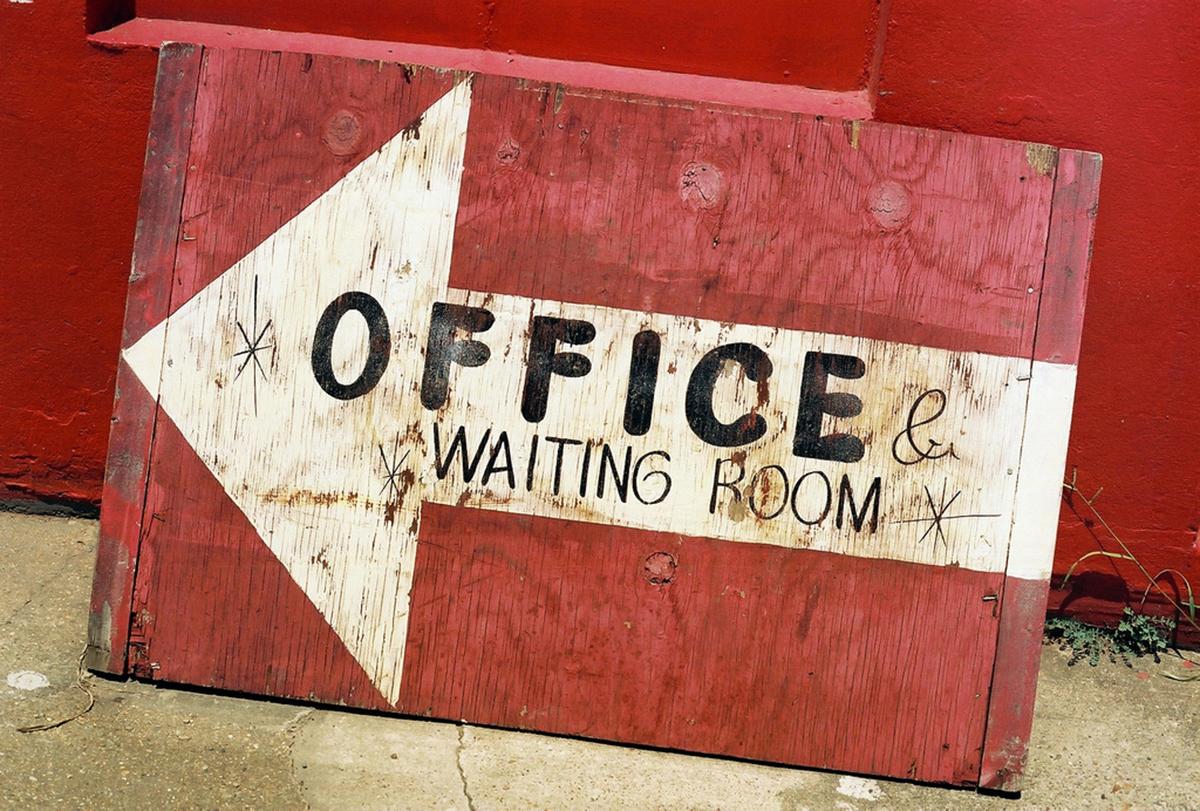Table of Contents
Doctors at a regional pain clinic in suburban Baltimore, Maryland noticed that their schedules were frequently disrupted by patients who arrived late. In response to the problems patient tardiness caused, the clinic invoked a rule that any patient who arrived late for an appointment would be offered an appointment to be seen on another day. Scheduling staff kept precise records of patient arrival times before and after the intervention, involving every patient who was seen at the clinic, 1500 visits in all, by patients aged 18 to 93. Here's what they found:
- Before the punctuality rule was announced, patients arrived on average 23.2 minutes before their appointments.
- One month after the punctuality rule was announced, patients arrived on average 23.8 minutes before their appointments.
- A year after the punctuality rule was announced, patients arrived on average 25.0 minutes before their appointments.

In other words, in this case of a doctor office's getting tough on tardiness, the one sure result was that patients waited longer to be seen. However, most patients were arriving early before the new rule was announced. This rule made it easier for doctors and nurses to manage their workload, but it penalized patients who were already punctual. So how should patients deal with this issue?
- Whenever you can, be kind and considerate of your doctor's time, but insist on the same respect. It's often the doctors who are themselves chronically behind schedule who complain the most about patients who show up late.
- Whenever you can, use a "doctors offices near me" in selecting a doctor. The closer you are to the doctor, the less likely you are to be late.
READ How You Pay for Your Doctor's Free Lunch
- Some doctors have a three strikes rule. The first time you are more than five minutes late for an appointment, for example, you may be reminded that you need to appear on time. The second time you are more than five minutes late, you may be sent a warning letter. The third time you are more than five minutes late, you will be told that if you are late again, your doctor will no longer see you. And the fourth time you are more than five minutes late, you will be told to see another doctor. However, it's fair to apply the same rule to your doctor. If your doctor is chronically tardy in seeing you even when you show up on time, especially if it's to take personal phone calls or go out to lunch while you are waiting to be seen, then you may simply need to see a different doctor yourself.
- Don't take no for an answer if you have an urgent medical need to be seen. It's not ethical for doctors to deny treatment on the basis that it is inconvenient. If you keel over and have a heart attack on your way out the door when you let the receptionist know you had chest pains, the doctor may be legally liable.
Do your best to work with the best doctors. Make sure they are paid for their services. Realize that doctors who care may spend more time than expected with other patients, or with you. But insist on the same level of respect you provide your doctor.
- Ellis DA, Jenkins R. Watch-wearing as a marker of conscientiousness. PeerJ. 2015 Aug 27.3:e1210. doi: 10.7717/peerj.1210. eCollection 2015. PMID: 26334540.
- Photo courtesy of kaiengel: www.flickr.com/photos/kaiengel/14259735630/
- Photo courtesy of kaiengel: www.flickr.com/photos/kaiengel/14259735630/
- Photo courtesy of stevensnodgrass: www.flickr.com/photos/stevensnodgrass/4906005447/


Your thoughts on this